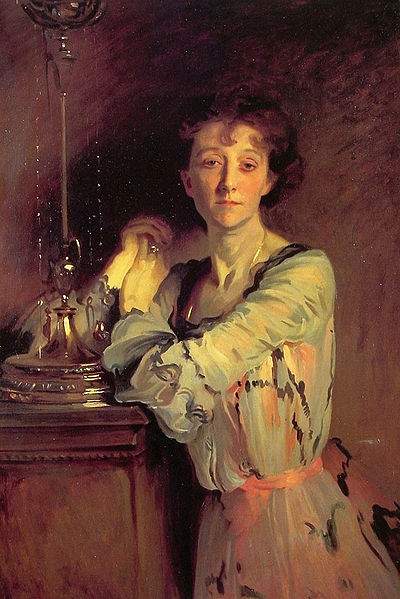
It is easy to dismiss The Making of a Marchioness as a ‘fairy tale’, Cinderella in Victorian dress, but Cinderella, as far as we know, did not teach her step-mother, or her sisters, or her Prince, any lasting lessons. Emily Fox-Seton, like her Persephone ‘sister’, Miss Pettigrew (Miss Pettigrew Lives for a Day by Winifred Watson, Persephone Book No 21), is childlike, in so far as she lacks the sophistication and ruthless social drive of many of those around her, but like Miss Pettigrew, she brings a degree of maturity, of unselfishness and energy to the party, that, eventually, leave their mark on those close to her.
Miss P’s fortuitous entry into the demi-monde of Thirties London was utterly unexpected and desperately needed. Emily Fox-Seton’s consolidation of her position in the Victorian upper class is not beyond all expectation; she is ‘of good blood’, has titled relations, and no need of lessons in dress or deportment, but money is short. ‘It is her fate to be a woman who is perfectly well born, and who is as penniless as a charwoman, and works like one.’ Not quite a charwoman, perhaps, but as we know from Ruth Adam’s A Woman’s Place (Persephone Book No. 20) job opportunities for women of Emily’s class were limited: assistant teacher, nursery governess, companion, tirelessly and cheerfully fulfilling the needs of others, with no regard, or even awareness of her own. Some bloggers have found this Polyanna-ish goodness excessive, but Emily, in spite of what she and others think, is clever, clever enough to be aware that there are rewards to be gained from serving others well. An ‘unpleasant old woman in Northumberland’ to whom she acted as reading companion, had proved unexpectedly grateful, leaving her a small legacy and the address of a good landlady.
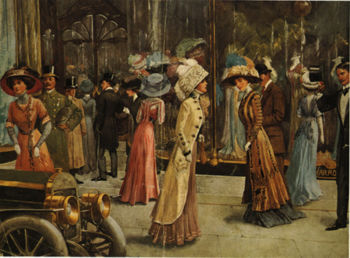
When we meet her she is working as a sort of roving PA to upper class acquaintances, securing for them everything from stockings to staff. Her main ‘employer’ is the wickedly selfish, and wickedly funny Lady Maria Bayne, who, intentionally or not (the reader is left in doubt), will prove to be her fairy godmother, and, though heartlessly exploitative, to feel genuine affection for her. When Emily is close to death she is quite devastated, ‘Her worldly air of elderly gaiety had disappeared. She looked a hundred. She was almost dilapidated. She had allowed to relax themselves the springs which held her together and ordinarily supplied her with sprightly movement’, such a brilliant description.
Frances Hodgson Burnett was no stranger to poverty, and it is clear that she knows whereof she speaks when she describes Emily’s careful remodelling of dresses and skirts from one season to the next, and her thrifty but effective decoration of her small bed-sitting room – the period detail a hundred years on is unusual and fascinating: two yards of Turkey-red cotton, one shilling and twopence; one pair of white muslin curtains, eight and eleven. Emily doesn’t complain, but Burnett complains for her, and for all the women like her, when she voices her anxieties to Lady Maria: ‘No-one knows what the Future is to poor women. One knows that one must get older – and one may not keep well, and if one could not be active and in good spirits – if one could not run about on errands – and things fell off – what could one do?’ Good Emily, unbelievably good Emily, comes to life when she reveals the dark side of her life. The anxiety and despair in her all too plausible premonition of things ‘falling off’ is poignant. She is thirty-four. Her dancing days are over.
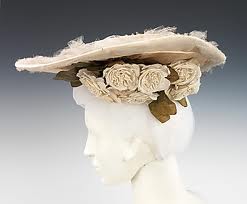
Beneath the froth of this rags-to-riches page-turner, Burnett examines some profound social truths. The fate of the unmarried woman, rich or poor, of whatever class, was an unenviable one. In Consequences (Persephone Book No. 13) E.M. Delafield describes it at its tragic worst. Burnett has a lighter touch, using the acerbic voice of Lady Maria to sum up the situation of the poor but titled Lady Agatha Slade and her five sisters. Poor as they are the Slades ‘have had the indecency to present themselves with six daughters …. Most men can’t afford them, and they can’t afford most men.’ It all comes down to money. Young women are a commodity, with limited shelf life. ‘In these days a new beauty is advertised like a new soap … Alix [Agatha’s next sister] must come out next season, and they can’t afford frocks for two’. Without a husband, Agatha will not be forced, as Emily is, to earn a living, but she will have to be sent to her family’s ‘place in Ireland’ (poverty was always relative), which Lady Maria, a stranger to understatement, likens to the Bastille, from which ‘She’ll never get out alive’.
!['The wedding [of Lady Agatha and Sir Bruce Norman] was the most radiant of the year. It was indeed a fairy pageant - of youth and beauty and happiness and hope.' The Walderhurst wedding was 'dignified and distinguished, but not radiant.'](https://persephonebooks.flywheelsites.com/wp-content/uploads/2012/09/victorian-wedding-breakfast-1895_small.jpg)
Desirable as it was, marriage in 1900 was not expected to be a path to happiness. . ‘It was nice if a girl liked the man who married her, but if he was a well-behaved, agreeable person of good means it was natural that she would end by liking him sufficiently’. Burnett knew from experience that marriage could be not only loveless but abusive.
The Marquis’s young cousin, and one time heir, Alec Osborn, a drunken ne’er-do-well, and his Anglo-Indian wife, a sad and lonely figure, uprooted, and ill-treated, are in just such a wretched union. Like Emily, Alec is poor but his poverty is largely of his own making – gambling and unsuitable women have been his undoing – and, unlike Emily, he has not adapted to it. He is a cruel scoundrel who will stop at nothing to obtain the birthright snatched from him, as he sees it, by the new Marchioness (providing the nail-biting plot of the second part of the novel). Once again the Judgement of Society is pronounced by Lady Maria: ‘Nobody is either moral or immoral these days, but penniless persons must be decent’. Burnett’s message is clear: money and property are defining factors in men’s lives as much as in women’s. Osborn bitter comment that in marrying Emily ‘Walderhurst got a deal for his money’, speaks volumes about the three of them and the world in which they live.
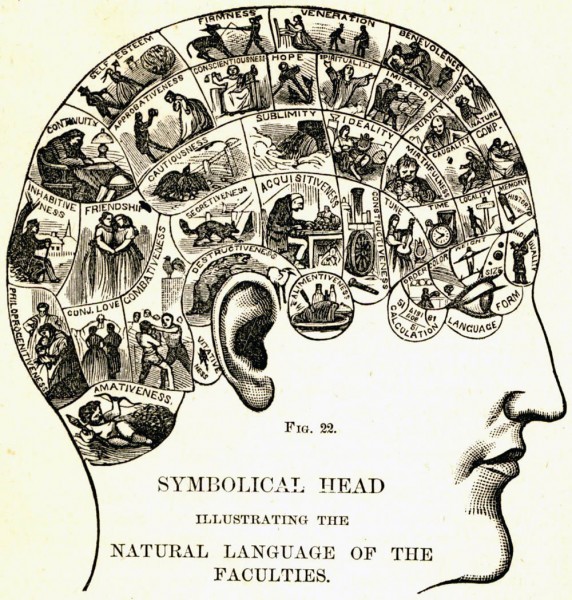
If Emily is the Angel in the House and Alec certainly the Devil, literary stereotypes both, the Marquis, while being what from our vantage point appears to be ‘typically Victorian’, is a more fleshed out complex character. He has reached his mid-fifties, having conceived a child, two, if we count the embryonic Walderhust that Emily is bearing, without ever having felt love, let alone passion, for a woman. ‘I do not generally like women’, he tells Emily, after proposing to her. When he kisses her for the first time after their marriage he does so ‘almost as if it had been a man – not quite but almost’. Writing from India, in the closest he gets to a love letter, he praises her eyes, ‘They seemed to me then to resemble something between the eyes of a very nice boy and the eyes of a delightful sheep dog’, adding, ‘This may not appear so romantic a comparison as it really is’. No indeed! A man, a sheepdog, a nice boy: what are we intended to make of this?
Leaving his sexuality aside, Walderhust is surely a type with whom Burnett was unhappily familiar: selfish, insensitive, ‘stiff and shy’ in the face of emotion, not particularly clever, and definitely not as clever as he thinks, nor indeed as clever as his wife ( although that would never occur to him, any more than it would to her). By the standards of the age, he is not a bad man: he ‘conducted himself well towards his tenantry, and was patron of several notable charities’, but he is ruthless, ‘He did not snub people, he cut the cord of mental communication with them and dropped them into space’. We know this man: self-absorbed, emotionally illiterate, and with a streak of cruelty. The closest her comes to a declaration of love is to tell Emily that she makes him ‘feel quite sentimental’, a feeling which he mistrusts; he enjoys the knowledge that she remains slightly nervous of him. ‘If she had a son he should congratulate himself greatly’: Burnett’s rage is palpable. But, like Lady Maria, he is humanised by grief, ‘His stiff dignity hung about him in rags and tatters’, and, unexpectedly, and most touchingly by fatherhood.
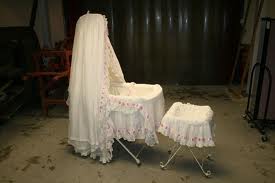
The Making of a Marchioness is a fairy tale, and a melodrama, but it contains a rich seam of social realism, some fascinating glimpses into ‘Downstairs’, and wittily cutting criticism of the idle rich ‘Upstairs’. One can almost catch the musty smell of the Cupps’ respectable but dingy lodging house, with its yellowish marbled wallpaper and indeterminate dun paint, its black little back yard, and clean doorsteps, where the milk was taken in twice a day, and people ‘had too many anxieties connected with butcher’s bills, rent and taxes to give much time to their neighbours.’ To become a lady’s maid offered not servitude but an escape from this, the possibility of travel, and the society of the servants’ hall, ‘almost like high life’. Feisty and loyal, Jane Cupp, doesn’t hesitate to accept the job with the new Marchioness, after a course of lessons from a French hairdresser: pay, £35.00 a year, ‘and beer of course’. ‘Of course’? How little I knew of life in 1900. And ‘list’ slippers to creep about unheard, and straw thickly laid outside the houses of the sick … the detail is fascinating
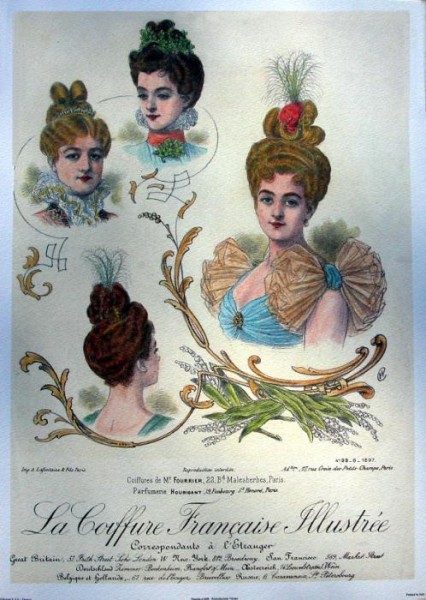
And, yes, one of the details of the period from which Burnett does not attempt to conceal is racism, an issue which concerns some bloggers. The language of 1900 may offend now, but that was how it was and Mrs Cupp’s ill-judged present of a little brown Testament to Hester Osborn’s Indian maid, is firmly mocked. The Making of a Marchioness was written in 1901 by a sharp eyed observer of her times. As well throw the book across the room on the grounds that it presents such a vivid picture of male chauvinism and a rigid class structure. Burnett describes attitudes; she doesn’t endorse them.
quotes … do share your favourites
They had both had hard lives, and knew what lay before them. Agatha knew she must make a marriage or fade out of existence in prosaic and narrowed dullness. Emily knew that there was no prospect for her of desirable marriage at all. She was too poor, too entirely unsupported by social surroundings, and not sufficiently radiant to catch the roving eye. to be able to maintain herself decently, to be given an occasional treat by her more fortunate friends, and to be allowed by fortune to present to the face of the world the appearance of a woman who was not a pauper, was all she could expect. But she felt that Lady Agatha had the right to more. she did not reason the matter out and ask herself why she had the right to more, but she accepted the proposition as a fact.’
‘Never in her life had her ladyship allowed herself the indiscretion of appearing a person in whom confidences might be reposed. She had always had confidences enough of her own to take care of, without sharing those of other people.’
‘The contrast between herself and this woman was very often too great to be equably borne. Even her kindness could not palliate it. The simple perfection of her country clothes, the shining skin of her horses, the smooth roll of her carriage, the automatic servants who attended her, were suggestive of that ease and completeness in all things only to be compassed by long-possessed wealth.’
If you have enjoyed this book, you might also enjoy:
The Shuttle by Frances Hodgson Burnett (Persephone Book No 71)
Consequences by E.M. Delafield (Persephone Book No 13)
Miss Pettigrew Lives for a Day by Winifred Watson (Persephone Book No 21)
A Woman’s Place: 1910-75 by Ruth Adam (Persephone Book No 20)
What other bloggers have said about this book:
On her own at home, Emily is beset by the evil Alec Osborn, Walderhurst’s dissolute heir presumptive, who views Emily’ existence (and that of her potential offspring) as a direct threat to him. We move rapidly from a story so sweet that it hurts your teeth, to one so dark that it keeps you up at night. Is Osborn going to murder Emily? How involved in any potential plot is Osborn’s wife Hester, whom Emily befriends? And what exactly is going on with the Indian servant Ameerah?
Like most Persephone books, issues pertaining to feminism and class are just under the surface of these stories. Why must Emily be so accommodating all the time? Because it is her nature, or her only guarantee of survival? How does Hester’s Anglo-Indian heritage make her an ambiguous figure? Is Walderhurst’s remoteness a feature of his personality or his culture? Persephone titles like this one make me think a lot.abookaweek
As she scrapes and makes ends meet and remakes her gowns so she will be neat and presentable, she faces the world with humility, sweetness, and good humor, and does her wealthy relatives’errands with a sense of gratitude that she has work to do, and can make a living. Her relatives, of course, like the snarky-but-wonderful Aunt Maria, know that in Emily they possess a jewel, but it’s a diamond they’re quite willing to wear on the soles of their shoes. Â shelflove